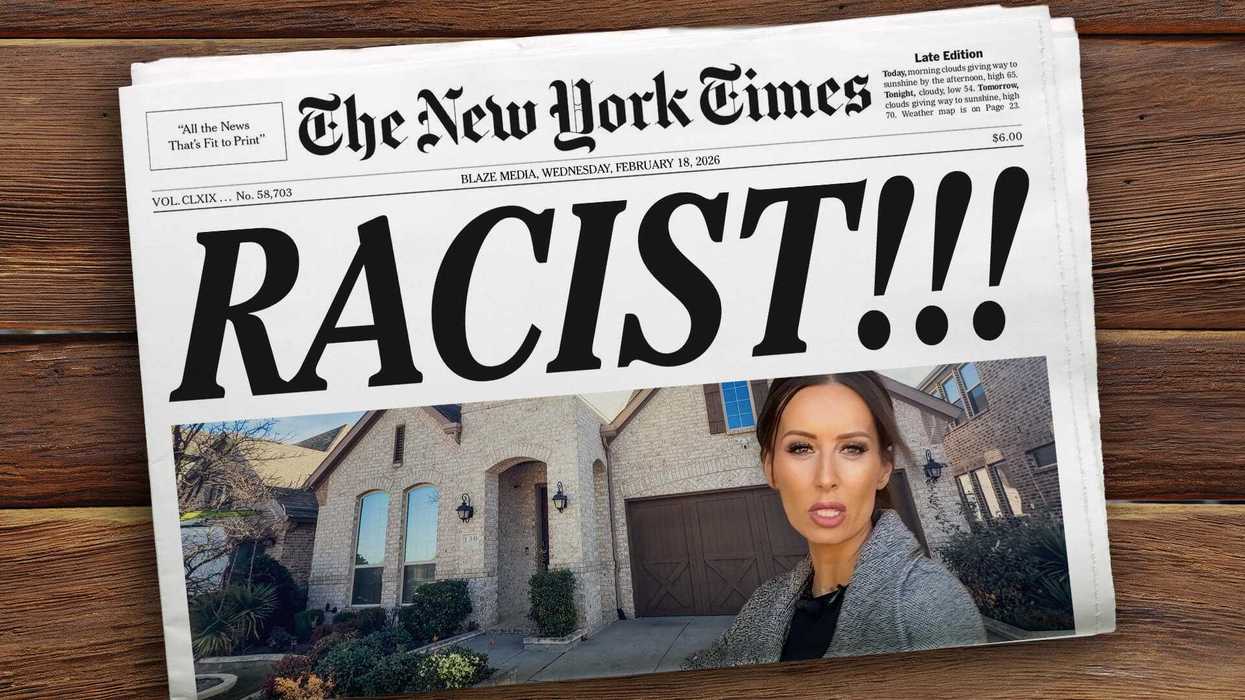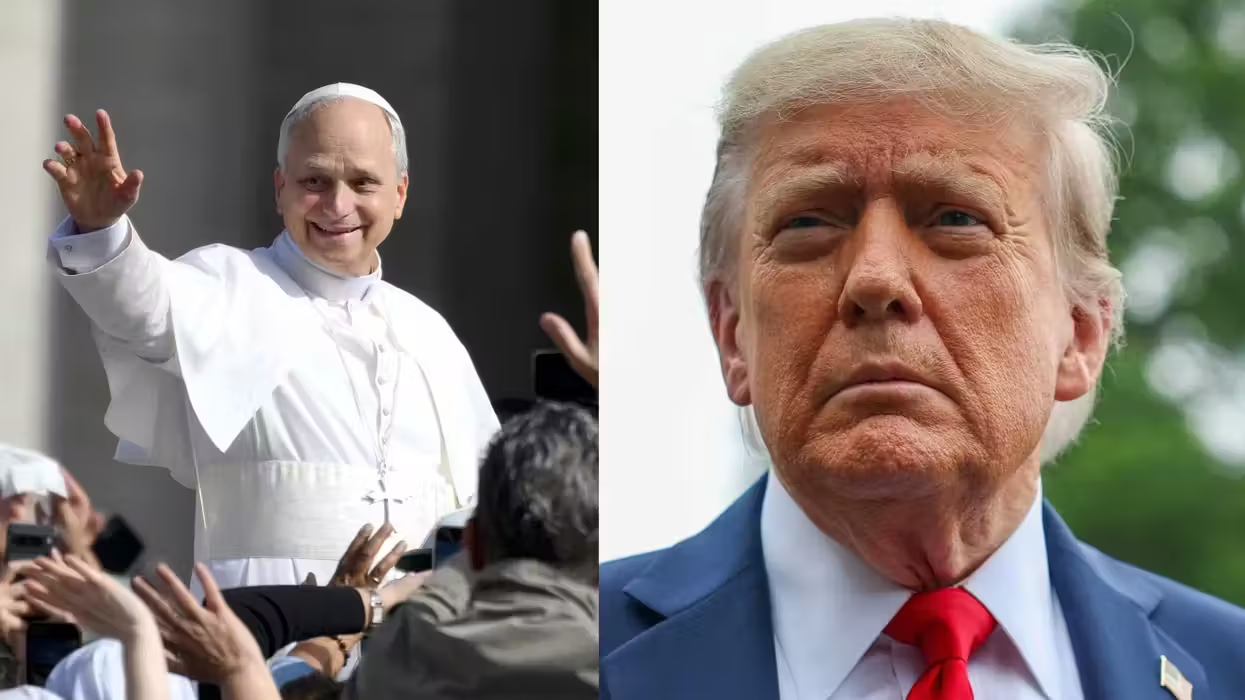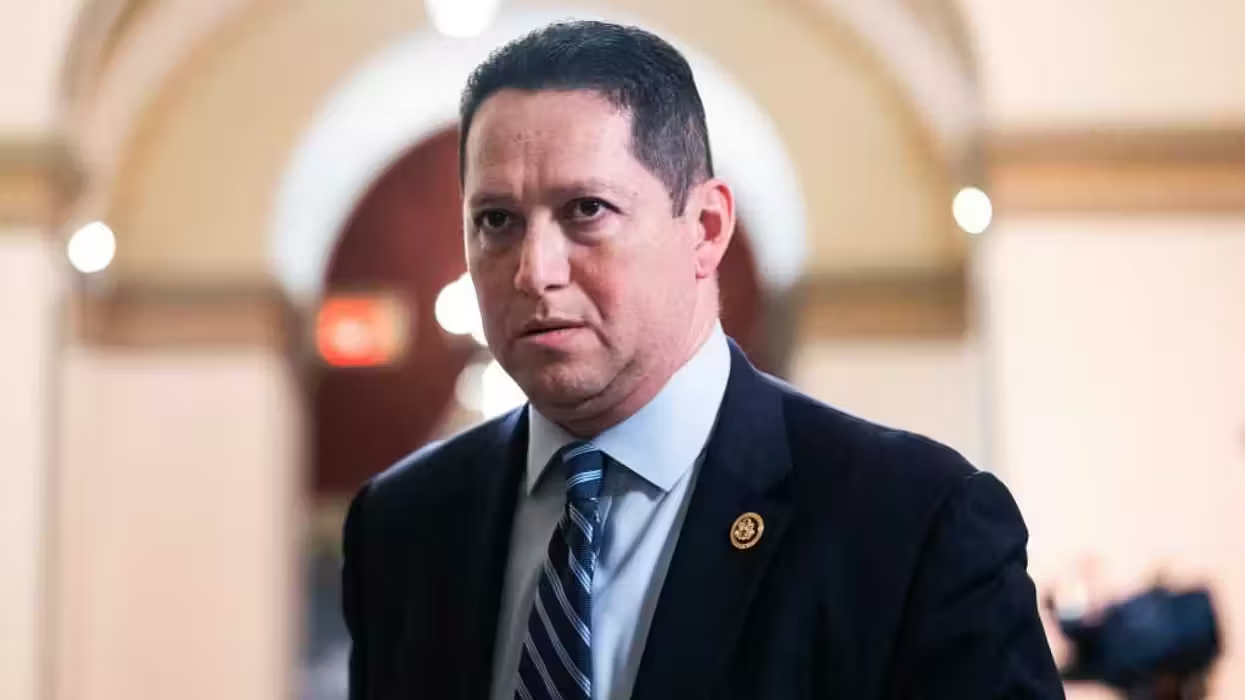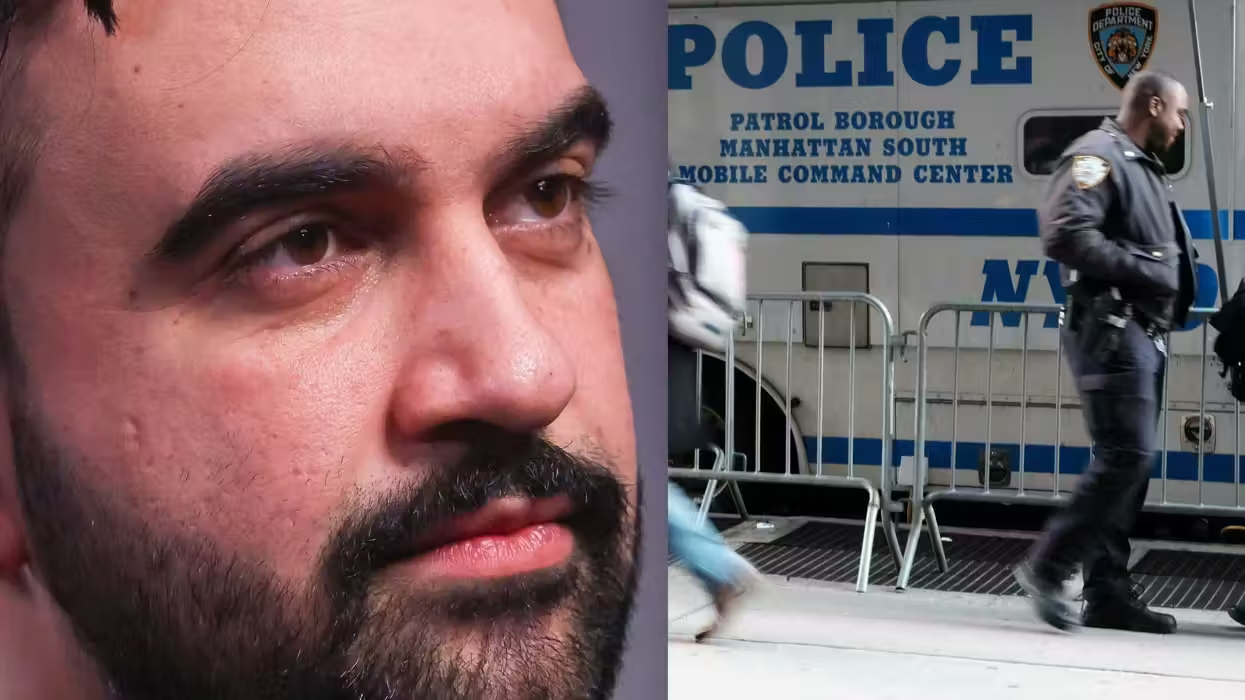
© 2026 Blaze Media LLC. All rights reserved.
Unholy War: FFRF Sues the IRS & Wages Attack Against Billy Graham Over Religious Groups' Alleged Political Endorsements
November 19, 2012
Atheist activists are less-than-content over some churches' and religious institutions' handling of the 2012 presidential campaign season -- particularly when it came to perceived candidate endorsements. In fact, secularists are so frustrated that the Freedom From Religion Foundation (FFRF), a non-theist activist nonprofit, is suing the Internal Revenue Service (IRS) in an effort to force the government's hand to ensure that churches uphold tax law.
Last Tuesday, the FFRF filed its lawsuit in U.S. District Court in Wisconsin, according to a press release published by the organization. In the complaint, the group claims that the IRS has not been enforcing regulations surrounding how churches and religious entities handle candidate endorsements during election seasons. As a result, the atheist group believes that the IRS has violated both the Establishment Clause and the FFRF's own "equal protection rights."
 Photo Credit: AP
Photo Credit: AP
The press release further explains what the atheist group is seeking through its legal complaint:
A widely circulated Bloomberg news article quoted Russell Renwicks, with the IRS’ Tax-Exempt and Government Entities division, saying the IRS has suspended tax audits of churches. Other sources claim the IRS hasn’t been auditing churches since 2009. (See AP Religion Writer Rachel Zoll’s story, “IRS Not Enforcing Rules on Churches and Politics.”) Although an IRS spokesman claimed Renwicks “misspoke,” there appears to be no evidence of IRS inquiries or action in the past three years. [...]FFRF, a state/church watchdog based in Madison, Wis., is asking the the federal court to enjoin IRS Commissioner Douglas Shulman from continuing “a policy of non-enforcement of the electioneering restrictions against churches and religious organizations.”
Additionally, FFRF seeks to order Shulman “to authorize a high-ranking official within the IRS to approve and initiate enforcement of the restrictions of §501(c)(3) against churches and religious organizations, including the electioneering restrictions, as required by law.”
In October, TheBlaze reported that the IRS has temporarily suspended church audits. On his blog “Religion Clause, Howard Friedman, professor of law emeritus at the University of Toledo, explained this change, which is apparently based upon a 2009 court case — and an influx of complaints against churches that have become too politically active:
BNA Daily Report for Executives dated 10/22/2012...reports that the the Internal Revenue Service has temporarily suspended tax audits of churches pending final adoption of IRS rule changes to clarify which high level Treasury official has authority to make a determination under IRC Sec. 7611 that there are reasonable grounds to begin a church tax inquiry…At an American Law Institute Continuing Legal Education conference, IRS speaker Russell Renwicks, area group manager from the Mid-Atlantic region of the Tax-Exempt and Government Entities division, said the IRS has been bombarded with complaints about churches becoming involved in the elections, but it has been unable to respond even to potentially egregious cases. The rule changes are necessitated by a 2009 Minnesota federal district court ruling…
It seems that part of the FFRF's complaint and call for a "high-ranking official" within the IRS to combat purported church abuses is predicated, at least in part, on this development (read the entire report for more about the suspension of church audits).
Among the issues cited in the FFRF complaint was The Billy Graham Evangelistic Association's (BGEA) controversial, full-page ad in The Wall Street Journal, among other outlets. The text associated with the ad makes some bold proclamations, while encouraging people to "vote for biblical values."
As TheBlaze noted when the ad came out: While Graham doesn’t officially endorse a candidate by name, his focus upon these issues [gay marriage and abortion] leads one to assume that Republican candidate Mitt Romney was his choice. The BGEA isn't the only focus of the complaint. According to the press release, the FFRF has sent 27 complaints in 2012, alone, about other alleged violations.
 Photo Credit: The Billy Graham Evangelistic Association
Photo Credit: The Billy Graham Evangelistic Association
One additional example that the organization notes is Peoria, Illinois-based Bishop Daniel R. Jenky, who made some divisive comments about President Barack Obama earlier this year. He said that the president is on a "similar path" to Hitler and Stalin, among other controversial statements.
The FFRF argues that by not going after alleged violations like Graham's and others like it that the IRS is giving churches and religious groups "preferential treatment." The activist organization notes that these organizations benefit handsomely from tax exemptions, but that, unlike secular groups, they are being permitted to become more politically engaged.
TheBlaze reached out to the IRS to speak further about the court case (FFRF vs. IRS), however we have not yet heard back from officials regarding two key questions: Is the IRS currently investigating churches? and Did official investigations of church tax violations stop in 2009? A representative told TheBlaze in a phone conversation on Thursday that she would track answers down, however a response has not yet followed.
As for the FFRF, TheBlaze also reached out to speak with a representative at the organization's Madison, Wisconsin-based headquarters. A receptionist consulted with staffers and quickly explained that the organization is not willing to speak with TheBlaze about the complaint; she subsequently hung up.
 Photo Credit: AP
Photo Credit: AP
To understand what's underlying the recent lawsuit, it's important to discuss a number of other recent developments. As TheBlaze has reported in the past, the "Johnson Amendment" is an IRS code that was created in 1954. For the past 60 years, the controversial regulation has governed how charities and churches — 501(c)(3) organizations — can handle political partisanship.
The code explicitly prohibits non-profit organizations from engaging in campaign activity (this includes churches), essentially preventing preachers from endorsing candidates from the pulpit. Rather than declining in prevalence over time, this regulation has actually been strengthened. The last change was made to it back in 1987, when the amendment’s language was tightened to clarify that the restrictions should also cover statements and stances that rail against candidates (previously it was interpreted to only stand for statements that supported specific candidates).
TheBlaze has regularly covered the annual "Pulpit Freedom Sunday" event, which is organized by pastors across America to rail against the Johnson Amendment -- a provision that some believe hampers free speech. The goal of the project is to incite the IRS to investigate (participating pastors mail videos of their politicized sermons to the IRS) churches on these grounds so that the decades-old regulation can be challenged in court.
Naturally, the FFRF, also a 501(c)(3) and subject to the Johnson Amendment, stands against the Pulpit Freedom Sunday event. Now that the group is calling upon the IRS, it will be interesting to see how these houses of worship are treated by both the judge(s) hearing the case and by the government institution as well.
--
Related:
Want to leave a tip?
We answer to you. Help keep our content free of advertisers and big tech censorship by leaving a tip today.
Want to join the conversation?
Already a subscriber?
Billy Hallowell is a digital TV host and interviewer for Faithwire and CBN News and the co-host of CBN’s "Quick Start Podcast."
Billy Hallowell
Billy Hallowell is a digital TV host and interviewer for Faithwire and CBN News and the co-host of CBN’s "Quick Start Podcast."
more stories
Sign up for the Blaze newsletter
By signing up, you agree to our Privacy Policy and Terms of Use, and agree to receive content that may sometimes include advertisements. You may opt out at any time.
Related Content
© 2026 Blaze Media LLC. All rights reserved.
Get the stories that matter most delivered directly to your inbox.
By signing up, you agree to our Privacy Policy and Terms of Use, and agree to receive content that may sometimes include advertisements. You may opt out at any time.






